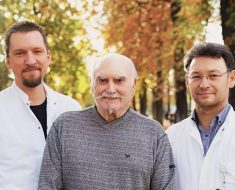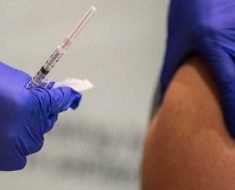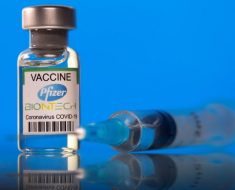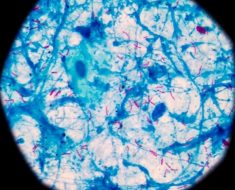The first long-term seroprevalence study of residents in Wuhan, China, has found that 6.9% of people in the city had antibodies against COVID-19 in April 2020, and 82% of these people had an asymptomatic infection.
Additionally, 40% of people with antibodies developed neutralizing antibodies, and these levels did not decrease between April and October-December 2020. The results are published in an observational study of 9,542 people in The Lancet.
The authors say that understanding seroprevalence and how antibody levels change over time in Wuhan will help inform their vaccination strategy, with their findings indicating that mass vaccination is needed to protect against future resurgences of the virus.
The latest seroprevalence study from Wuhan adds to previous seroprevalence studies conducted globally, including in Geneva (Switzerland), Spain, the USA, Iceland and the Netherlands, which have attempted to shed light on the true rate of infection in a population. This is particularly important as the rates of asymptomatic infection are uncertain, with estimates ranging from between 6% to 96% globally.
Assessing the proportion of the population that have been infected with SARS-CoV-2 and who are immune is of utmost importance for determining effective prevention and control strategies to reduce the likelihood of future resurgence of the pandemic. Given that individuals with mild infections might not seek medical care and that asymptomatic individuals are not usually screened, there may be large discrepancies between the reported COVID-19 cases, and actual infected cases, which has been proven by the experiences and data from other countries."
Dr Chen Wang, Study Lead Author, Chinese Academy of Medical Sciences & Peking Union Medical College, China
He continues: "Even at the epicenter of the pandemic in China, with more than 50,000 confirmed cases as of April 8, 2020, the estimated seroprevalence in Wuhan remains low, and around 40% of people with antibodies developed neutralizing antibodies, suggesting there is still lack of immunity in the population."
Participants in the study lived across all 13 districts of Wuhan, with all members of a household invited to take part. All ages were included in the study, but people with serious diseases (such as advanced cancer or severe mental illness) were excluded.
Participants completed a questionnaire of demographic and health information, including if they had previously been diagnosed with COVID-19 or had had any COVID-19 symptoms since 1 December 2019.
Blood samples were taken to test if antibodies were present in mid-April 2020, mid-June, and between October and December. Infections were classed as symptomatic if a participant reported having had fever and/or respiratory symptoms and was positive for COVID-19 antibodies. The study included 9,542 people from 3,556 families.
Of the 9,542 participants, 532 had antibodies against COVID-19. When adjusted, this equated to a seroprevalence of 6.9% in the population of Wuhan.
The authors found that women had a higher seroprevalence than men, people aged 66 years or over had the highest seroprevalence than any other age group, health care workers had a higher seroprevalence than other occupations, and people who had visited hospital in the past five months had higher seroprevalence than those who had not.
437 (82%) of 532 participants who were positive for antibodies were asymptomatic. The study authors note that this is much higher than past estimates of 40-45% reported worldwide.
They say this may be due to recall bias where participants reported their own symptoms five months later, but also say that this is unlikely to overestimate incidence to a large extent in their study because stringent measures were taken in Wuhan to identify every case, and Wuhan residents were vigilant in recording their symptoms during the outbreak.
Around 40% of participants (212/532 people) were positive for neutralizing antibodies – those that protect against future infection – in April 2020. The proportion of people who had neutralizing antibodies remained stable for the two follow-up periods – with 45% (162/363 people) in June 2020, and 41% (187/454 people) in October-December 2020.
In addition, looking at the levels of neutralizing antibodies in people's blood using data from 335 people who attended all three blood tests, the authors found that these levels did not significantly decrease over the nine months of the study. However, people who had had asymptomatic COVID-19 had lower levels than people who had confirmed or symptomatic COVID-19 disease.
Co-author, Dr Lili Ren, Institute of Pathogen Biology, Chinese Academy of Medical Sciences & Peking Union Medical College, China, says: "Little is known of the durability of immune responses against SARS-CoV-2 over a long period. In our study, we found that the proportion of participants with antibodies against SARS-CoV-2 was sustained for at least nine months. Importantly, we found that neutralizing antibody titers remained stable for at least nine months."
The authors note some limitations to their study, including that they cannot confirm when participants were infected and produced antibodies because most cases were asymptomatic and not confirmed by PCR testing at the outset of their infection. However, they note that there were very few cases of COVID-19 reported in Wuhan between mid-March and April 2020, so assumed infection occurred at least 4 weeks before blood samples were taken.
The authors of a linked Comment, Professor Richard Strugnell and Dr Nancy Wang (who were not involved in the study) from Doherty Institute, Australia, say the seroprevalence estimate suggests that the number of infections in Wuhan likely exceeded the number of reported COVID-19 cases in Wuhan.
They write: "If the seroconversion rate is an accurate reflection of exposure to SARS-CoV-2, the apparent disparity between low case numbers and high seroconversion rate seems to suggest that most seroconverted individuals produced antibodies to SARS-CoV-2 after asymptomatic infection."
They also note that the findings have provided a much deeper understanding of natural seroconversion in a key city in the pandemic, and that the findings underscore the success in controlling the Wuhan outbreak of COVID-19 at a time when testing, tracing, and treatment resources were much less developed:
"Efficient global management of COVID-19 will probably succeed or fail on the basis of the immunity induced by natural infection and, especially, vaccination. Given the relative paucity of neutralizing antibodies through natural infection, the study by He and colleagues reinforces the need for effective COVID-19 vaccines in the population-level control of the disease.
The extraordinary, rapid, and effective control measures implemented in Wuhan might have restricted the spread of the virus, but also reduced naturally-acquired herd immunity by truncating the development of sustained neutralizing antibodies."
Although other national and local governments have used alternate and usually less effective strategies to control the spread of COVID-19, even in highly endemic communities the prevalence of disease is usually too low to drive sufficient herd immunity to protect the population.
"He and colleagues' findings suggest that herd immunity will likely not develop after natural transmission in settings where infection control mechanisms are successfully introduced, underscoring the importance of effective vaccination strategies to control the spread of COVID-19. This study is an important milestone in the description of SARS-CoV-2 infection and our understanding of immunity in the pandemic."
The Lancet
He, Z., et al. (2021) Seroprevalence and humoral immune durability of anti-SARS-CoV-2 antibodies in Wuhan, China: a longitudinal, population-level, cross-sectional study. The Lancet. doi.org/10.1016/S0140-6736(21)00238-5.
Posted in: Disease/Infection News | Healthcare News | Pharmaceutical News
Tags: Antibodies, Antibody, Blood, Cancer, Fever, Health Care, Hospital, Immunization, Infection Control, Medicine, Pandemic, Pathogen, Respiratory, SARS, SARS-CoV-2, Virus
Source: Read Full Article





